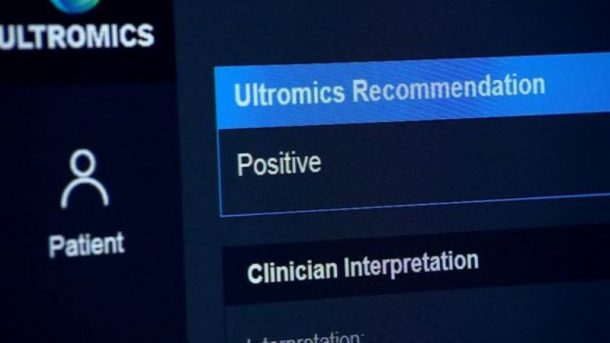AI has proved extremely beneficial in every industry including the medical science. A newly developed AI diagnostics system is another groundbreaking development that can change the method of diagnosis of heart diseases and lung cancer. Cardiologists are experts of their jobs but they can also make mistakes in the diagnosis of a patient. To check the health status of a person’s heart, a cardiologist assesses the heartbeat timings in the scans.
According to a report published by BBC News, almost 80 percent of the times the diagnosis is correct but the remaining 20 percent can be a huge risk to patients who fall in this category. Since there was room for improvement in this, a team of researchers from John Radcliff Hospital in Oxford England, have developed an AI diagnosis system, Ultromics, that turns out to be more accurate than the doctor’s diagnosis.
The Ultromics is trained using the heart scans of 1000 patients who were treated by the company’s chief medical officer, Paul Leeson. The scans were also accompanied by some reports to check whether or not those patients suffered from heart problems later on. The system has been put on trial many times. According to Leeson, the AI performed exceptionally as compared to human cardiologists.
Another startup, Optellum is also working to commercialize an AI system that will diagnose cancer by analyzing the clumps of cell found in scans. This system has also been tested in several trials. The company’s chief science and technology officer, Timor Kadir, said that the system can diagnose as many as 4000 lungs cancer patients per year. That is more than a regular doctor can do.
These AI diagnosis systems will not only be saving lives by giving an early diagnosis but will also be saving money. Kadir said that Optellum can cut the cost by $13.5 billion if it is used both in USA and Europe. The UK healthcare tsar Sir John Bell told BBC News that AI can leave a very positive impact on the National Health Service’s bottom line.

“There is about £2.2bn ($2.97 billion) spent on pathology services in the NHS,” said Bell. “You may be able to reduce that by 50 percent. AI may be the thing that saves the NHS.”
Today’s systems ability to make their human counterparts better and save institutions the money, there are concerns that AI might replace the doctors altogether one day. However, since doctors have a wide range of tasks to handle. AIs are expected to play a supporting role with the doctors. Very soon AI will be helping human workers in various fields to perform more efficiently and effectively in their jobs.


